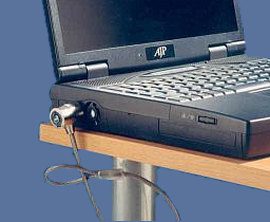 The convenience of laptops makes them easy targets for curious onlookers and thieves. Experts recommend that users encrypt their information, as there is an increasing number of laptops being stolen or accidentally left behind.
The convenience of laptops makes them easy targets for curious onlookers and thieves. Experts recommend that users encrypt their information, as there is an increasing number of laptops being stolen or accidentally left behind.
A notable case involved the exposure of data concerning 26.5 million veterans and military personnel from the U.S. Department of Veterans Affairs, which was stored on a laptop that “vanished” from the home of an employee at the agency.
“The number of stolen laptops is truly shocking, and it’s strange that users do not utilize encryption mechanisms to protect their data,” said Beth Givens, Director of the Privacy Rights Clearinghouse, a consumer research and education project. “If thieves have any knowledge, they will realize that they have more than just one computer.”
In many instances, employees have taken company information outside the office using laptops. However, they often fail to secure these devices and seem hesitant to use encryption methods, such as setting passwords for their machines and files. Alan Paller, Director of the SANS Institute, which specializes in computer security issues, explained that the reason for this reluctance is that if they forget their passwords, they will be unable to access their files, and these measures may seem to slow down their work.
This concern has prompted computer manufacturers to take notice and begin integrating encryption mechanisms into their products. For instance, Microsoft’s Windows Vista operating system will make it easier for users to encrypt their data.
Companies with a large number of mobile employees are also starting to pay attention to this issue. For example, the financial consulting firm Ernst & Young, which has 30,000 laptops in operation, is encrypting all content on its machines after information concerning 243,000 of their clients was found on a stolen laptop, including names, addresses, and credit card information.
Thùy Hương

















































